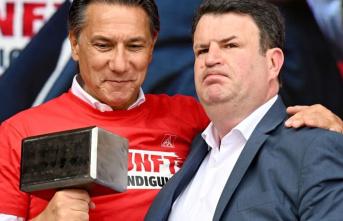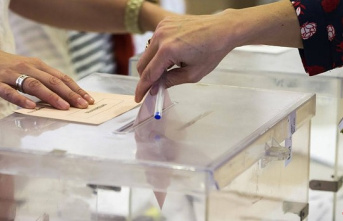The use of percentages when leveling the use of Catalan and Spanish in the classroom has become the key to a conflict that turns a deaf ear to the judgment of the Superior Court of Justice of Catalonia, which requires that at least one 25 percent of the subjects in this community are taught in Spanish. The Government rebels against the ruling and has asked the centers not to apply percentages in their linguistic projects, leaving the linguistic question to the free will of each school or institute. Moreover, if they do not do so, the department's approval will be denied to the linguistic projects and they will be given six months to adapt it, eliminating any percentage reference for this.
This denial of the linguistic balance that tries to impose itself in Catalonia, contrary to judicial decisions, contrasts with the reality of Galician classrooms, where for twelve years the so-called Plurilingualism Decree has been in force, which establishes a strong percentage division between the subjects taught in Galician and those offered in Spanish. An immovable 50-50 requires that, for example, Mathematics be given in Spanish and the Coñecemento do Medio subject in Galician, in all the schools of the Community, in the Primary stage. From there, each center decides every four years in which language the rest of the subjects are taught, "always protecting the balance", and leaving aside the subjects of Spanish Language and Lingua Galega, which will be taught in the language under study. .
In the case of Secondary Education and Baccalaureate, Mathematics, Technology and Physics and Chemistry will be offered in Spanish; and in Galician, Social Sciences, Nature Sciences and Biology and Xology. The rest of the options, as in the Primary, will remain in the hands of each center, which must ensure that the offer is equitable, "guaranteeing that Galician and Spanish are distributed in the same percentage of weekly hours" dictates the decree. In the case of Early Childhood Education, the rule that regulates linguistic use in Galicia establishes that the predominant language among the students will be used, which will be known through a previous survey that parents must complete when formalizing enrollment. Of course, teachers also "must attend to students individually, taking into account their mother tongue."
Within this equal distribution, which responds to the co-officiality of both languages, there is also room for foreign languages. Regarding them, the rule makes explicit that the use of English will be promoted progressively, offering up to a third of the weekly teaching hours in this language, which should not affect the balance between Spanish and Galician. Regarding the materials and textbook, the decree that governs Galicia is clear and indicates that they must be written in the language in which the subject is taught, without further ado.
The individuality of each speaker is also contemplated in this harmonic regulation, which indicates that in all subjects (regardless of languages) students "may use the official language of their choice in their oral and written expressions." In addition, and aware of the need to protect Galician, the decree requires each center to have a language normalization team "to promote the use of this language" through "promotion programs".
On the validity of this regulation, the Galician minister of the branch, Román Rodríguez, showed his pride in "being bilingual" and in using Spanish and Galician "with total normality, because they are our vehicle to understand each other." «Language is not a problem in Galicia» is defended by a Xunta aware that Galicia is the community with a co-official language in which there is greater knowledge of both by its speakers.












